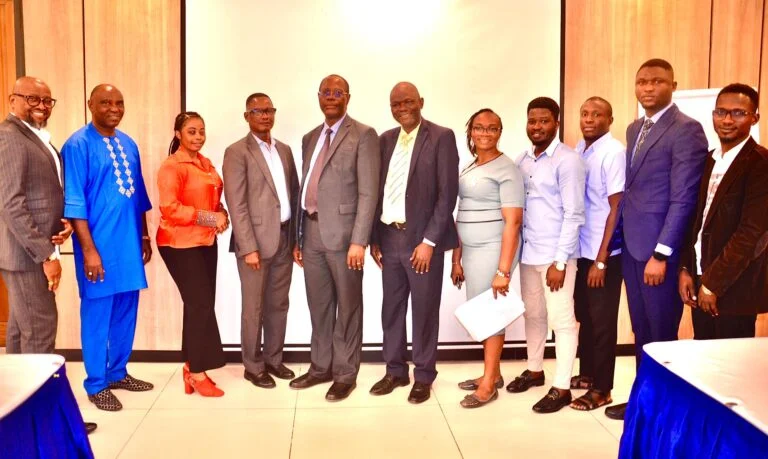By Grace Alegba
The National Institute of Credit Administration (NICA), Chartered, and the National Credit Guarantee Company (NCGC) have called on financial institutions and other stakeholders to collaborate in entrenching a robust credit culture in Nigeria.
They made the call on Friday at a sensitisation seminar organised by NICA in Lekki, Lagos.
The two-day event aimed at deepening stakeholders’ understanding of credit guarantee operations and management, with a focus on strengthening relationships between micro, small and medium enterprises (MSMEs), lending institutions, and credit guarantee providers.
They outlined strategies for robust credit system to boost entrepreneurship and promote growth of MSMEs, job creation and effective risk management.
NICA’s Registrar/CEO, Prof. Chris Onalo, in his presentation, explained the complete cycle of credit guarantee operations, challenges and benefits.
Onalo listed benefits of credit to include increased access to finance for MSMEs and other target groups, reduced risk for lenders and contribution to economic growth.
Speaking on the topic: “Understanding the Aims and Objectives of Guarantee Schemes”, he explained the state of credit culture in Nigeria, expressing concerns over the limited knowledge of the concept and its administration.
He emphasised the need for a structured approach to credit governance, adding that the lending institutions operated under a framework different from that of corporate organisations.
Speaking on safety of lenders funds, he assured that the Central Bank of Nigeria (CBN) would not permit lending without collateral which was important for risk mitigation, especially in unforeseen circumstances.
Onalo added that while the credit guarantee scheme was designed to be inclusive, only businesses with proper structures and documentation could access it.
He praised President Bola Tinubu’s administration for ongoing efforts to formalise and promote a national credit culture.
He, however, emphasised the role of structure, transparency and collaboration in achieving this vision.
He also advised entrepreneurs to practice financial discipline by allowing their businesses to pay them no matter the scale for healthy economic growth.
Delivering a keynote, NCGC’s Executive Director, Strategy and Operations, Mrs Tinuola Aigwedo, explained reasons for creation of the company with a mandate to stimulate and support economic activities among MSMEs and local manufacturers.
Aigwedo, represented by a director, Mr Yesufu Ahmed, spoke on the topic: “Strategies for Effective Collaboration in Credit Guarantee Scheme with the Targeted Partners.”
She clarified that the guarantee covered only the principal loan amount, excluding interest and important distinction for both lenders and borrowers.
She listed available products and highlighted the growing importance of institutional credit systems in Nigeria and the urgent need to foster a robust credit culture that supported entrepreneurship while managing risk effectively.
She urged Participating Financial Institutions (PFIs) to leverage guarantees to expand MSME lending safely and maintain prudent credit assessment to avoid moral hazard.
Aigwedo advised borrowers to embrace formal credit opportunities to grow and scale their businesses and also build credit discipline to strengthen access to future financing.
She called on Development Finance Institutions (DFIs) to provide funding and technical support to strengthen the guarantee ecosystem and collaborate on innovations that expanded MSME inclusion and resilience.
She gave the assurance that NCGC would ensure quick turnaround time without creating additional workload for PFIs and would drive continuous stakeholder engagement and capacity building.
“Together, MSMEs, PFIs and guarantee providers form a mutually reinforcing ecosystem where access meets opportunity, risk is shared and inclusive growth is achieved,” she said. (NAN)(www.nannews.ng)
Edited by Kevin Okunzuwa








